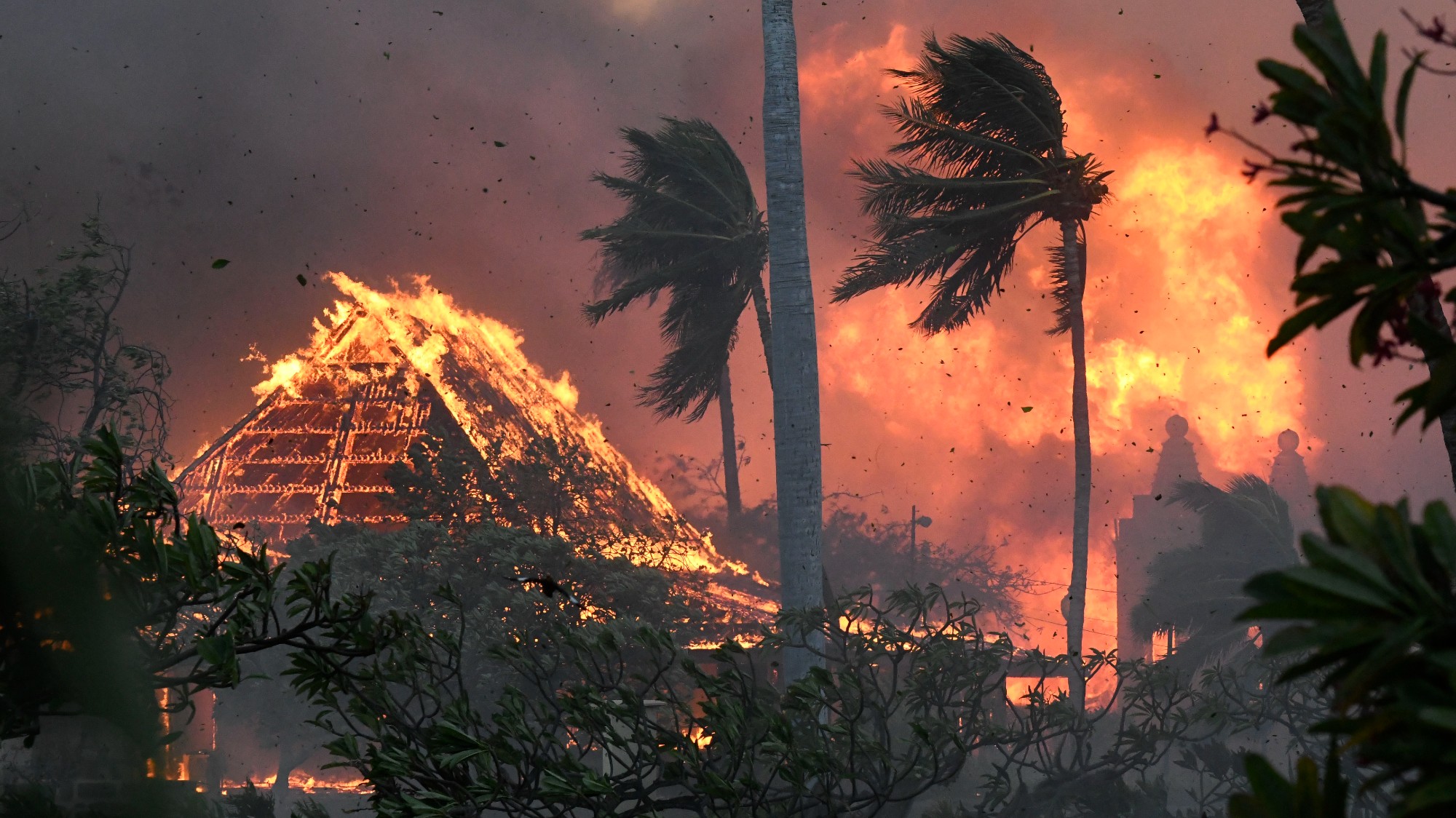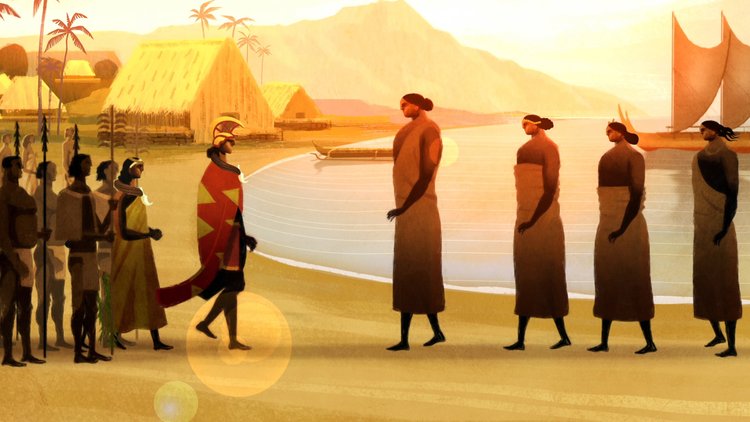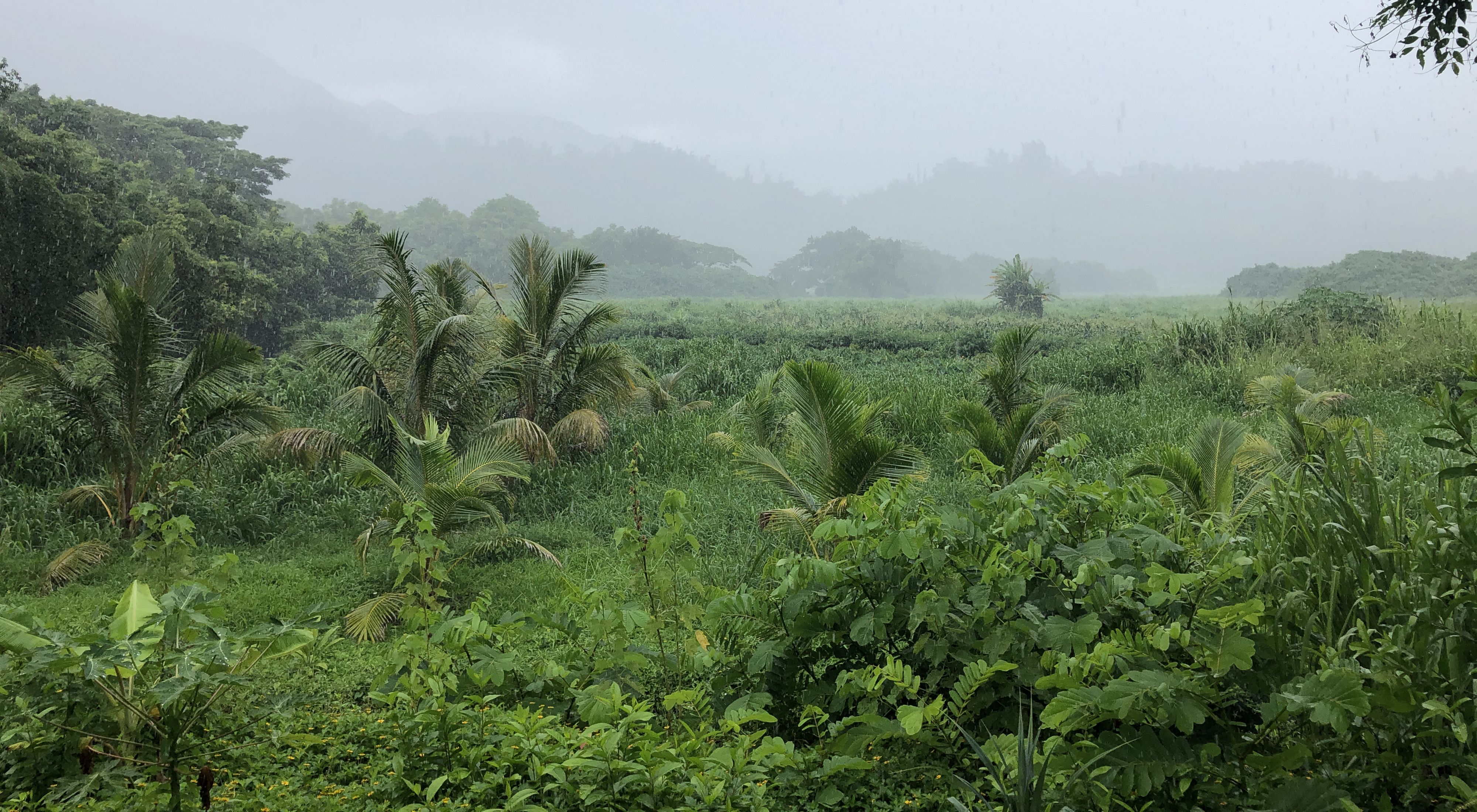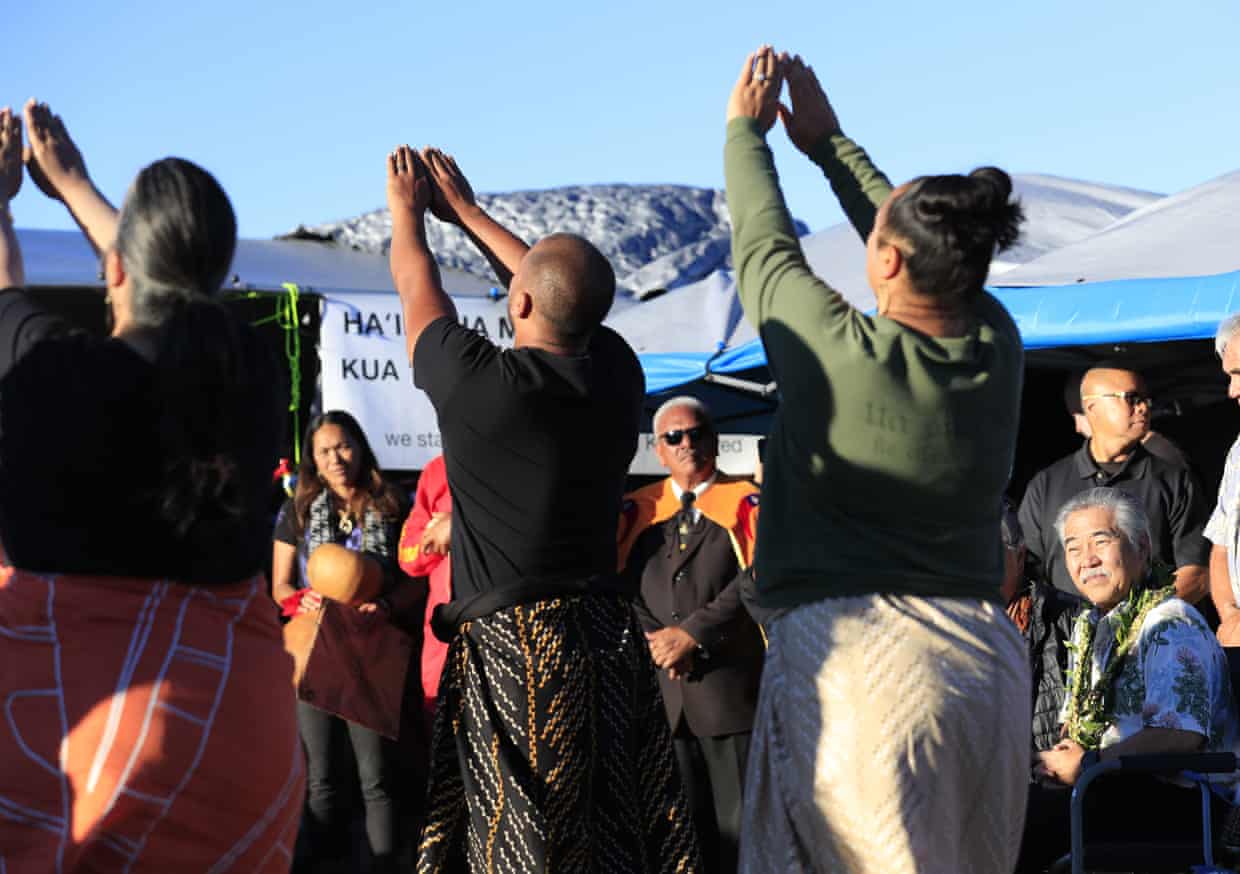An Appeal to the CHI community
The presence of CHI 2024 in Hawaiʻi is in blatant disregard for the rights and sovereignty of Kānaka Maoli (Native Hawaiians), and Kamaʻāina (locals), who are severely negatively impacted by over-tourism and climate degradation. This has been punctuated by the Maui fires, the deadliest in the USA in more than a century, which devastated the historic town of Lahaina and left 100+ people dead, with over 1000 people still missing. My heart and my community are devastated, and all CHI can do is open up paper submissions and push people to attend a conference in a broken community.
The CHI Steering and Organizing committees have repeatedly dismissed calls to relocate (for the past four years) and continue to ignore the impact of the fires. I (Josiah Hester, a Kānaka Maoli Professor in Computing) now call on the community of researchers engaged in decolonizing CHI and pushing towards a more equitable world to limit involvement in CHI 2024 in any form.
We recommend scientists and researchers in SIGHCHI do the following in solidarity:
Do not submit papers to CHI (CHI papers deadline has passed)
Do not review papers from CHI
Do not attend CHI in-person (Present online! Lower your carbon and local footprint!)
This website is meant to educate the SIGCHI community and spur actions around Hawaii.
Keep scrolling to: View F.A.Qs about Hawaii, Explore a flow chart for decision making, See the demands we are asking of CHI, Understand actions you can take today, read about the timeline of this whole debacle and finally, see additional resources and links to learn more.
**Update!**
I talked with Jacob Sorber (the most famous CS Prof YouTube influencer and my PhD advisor!) about the Maui fires and Why CHI should not be in Hawaii. Take a look!
We also reminisced on our work together the past decade.
Give it a watch!
“A community first and a vacation destination second.”
CHI has declared that the conference’s theme will be “Surfing the World,” claiming that this “represents its commitment to inviting everyone to explore and advance the frontiers of human-computer interaction.” This promise rings hollow when the CHI steering committee silences Native Hawaiian voices and brushes aside concerns raised repeatedly and respectfully over the past few years.
SIGCHI’s mission to "...create and shape how people interact with technology and understand how technologies impact people’s lives" while disregarding the negative impacts of their own decisions and actions is hypocritical and damaging to the reputation of a conference and area that is supposed to represent how Computing can be Inclusive, Diverse, Equitable, and Decolonizing.
Hawaiʻi is not an empty backdrop for a dream vacation or corporate gathering. It is a living, breathing community with a complex history of colonization and ongoing struggles for justice. The impact of conferences like CHI 2024 on Hawaiʻi's local communities and overwhelmed ecosystem is significant, contributing to the very issues that Native Hawaiians are striving to address. Furthermore, Hawaii can no longer support this tourism level after the historic dual crises of the COVID-19 pandemic and the Maui fires. Hawaii must be seen through the words of Maui Mayor Michael Victorino: “A community first and a vacation destination second."
For years, governors, community leaders, locals, and Native Hawaiians have pushed for change (including policy/laws) to mitigate the harms from the extractive, exploitative tourism industry that has a stranglehold on the island. Tourism has driven housing prices to historic, unsustainable levels, causing teachers, firefighters, and young, educated professionals to flee the island. Only 47% of those who identify as native Hawaiian live in Hawaii, down from 55% in 2010.. This is not just me– it is a known problem, even for those (including some of my family) who depend on tourism for survival. Tourism does not benefit the local community financially relative to its impact on housing and lack of services, as the major hotels are owned off-island, and locally owned (and quickly disappearing) small businesses have little market share.
Compounding the problem is the lack of Indigenous representation and voices in the management of Hawaii. The land is not yet stolen but is actively being taken from Native Hawaiians. It is a place where you, as a tourist, are actively participating in this theft– not just perpetuating something terrible– but making it worse by allowing these hotels and developers from off-Island to continue to grow their stranglehold on the local workforce and government. These multinational corporations use Native Hawaiians as tourist attractions and window dressing while not providing equitable pay, healthcare, or housing assistance.
“You, as a tourist, are actively participating in and accelerating theft of Hawaiian lands.”
I demand that the organizers take a hard look at their actions and demonstrate a commitment to the ACM code of ethics which states we must “Avoid harm,” rather than perpetuating the exploitation and disrespect of Indigenous land and culture and hurting locals devastated by the historic Maui fires.
To potential attendees, I encourage you to make the ethical choice by refraining from participating in CHI 2024 and using your absence to send a powerful message to CHI. We cannot ignore the rights and concerns of Indigenous people (and locals in Hawaii) in pursuing our professional interests.
FAQ
-
Native Hawaiians like myself call ourselves Kanaka Maoli (Kanaka means human being. Maoli means true, real, genuine). We are the original Indigenous inhabitants of the Hawaiian islands. Thousands of years ago, we traveled from Aotearoa (otherwise known as New Zealand) and settled on the shores of Maui. We made these voyages using only traditional navigation techniques and large open canoes across thousands of miles of open Pacific Ocean. Once on the islands, we developed a highly advanced communalistic and sustainability-focused society with carefully controlled agriculture and practices to preserve the land and ensure our people could live well.
Our traditions, such as surfing, farming, astronomy (we have more than 270 Hawaiian names for various stars), and voyaging, live on. Groups like the Polynesian Voyaging Society continue demonstrating these ancient navigational techniques (think Disney’s Moana!). Hōkūleʻa, one such voyaging canoe, has traveled over 140,000 miles to discover stories of hope that are being shared with students and learners of all ages.
However, these traditions have been and continue to be under threat. Hawaii was a self-governing, sovereign, and advanced nation (think electricity and flush toilets before the White House!), with representation in pre-U.N. global political bodies, right until July 1898 when the United States annexed the Kingdom of Hawai’i. This was only after the US supported an illegal overthrow of our sovereign Queen Liliʻuokalani in 1893. Since then, Native Hawaiian culture was marginalized and oppressed, with land being stolen and given to plantation owners, the language being banned (and almost extinct), and Native Hawaiians being treated like second-class citizens in their own homes. Over a century later, the impacts are still being felt, with health outcomes, literacy, and graduation rates lagging. In fact, Native Hawaiians have fewer healthy years than any other demographic on the islands, despite being the original inhabitants.
The past century has had a few positives, with the United States formally apologizing to the Hawaiian people and acknowledging their participation in the illegal overthrow in 1993, and more recently, a Hawaiian cultural revolution ensuing (and continuing now), with scores of our people returning to the islands, learning our language (ʻŌlelo Hawaiʻi), and engaging with our traditions and customs. We have lots of hope, but little help.
-
Maybe most importantly to understand: tourism dollars do not go back to locals: this is well known In Hawaii and elsewhere!
Hawaii must be seen through the words of Maui Mayor Michael Victorino: “A community first and a vacation destination second."
Hawaii has been in an unhealthy, abusive relationship with tourism for a long time. This has been long known and written about since the 90s! Tourism represents Hawaii's largest industry, around 21 percent of the state’s economy. However, few (if any) of this trickles down to locals. Tourism money goes to large off-island hospitality companies who rarely engage Kānaka Maoli (Native Hawaiians) except as cheap labor and a smiling face to say “Mahalo” insincerely to tourists like you!
These companies exploit and commodify Kānaka Maoli knowledge, culture, and labor for tourist consumption. This situation means that much of the money tourists spend in Hawaii does not stay in the local economy. For example, conference hotels tend to be owned by one of the same short list of companies we see worldwide. In fact, the CHI’s conference venue, The Hawaii Convention Center, is owned by the Hawaii Tourism Authority and managed by Los Angeles-based company AEG Live, a subsidiary of The Anschutz Corporation - an oil and gas company.
It is more accurate to say that tourism has replaced the local economy and driven out educated young professionals born on the islands. Tourism has also replaced many local industries (including tech and computing!) and displaced many Kānaka Maoli. Large percentages of Kānaka Maoli cannot afford to own homes [1, 2, 3] or live on their own islands. Over 300,000 Kānaka Maoli are displaced across the broader United States.
Locals and even political leaders in Hawaii (especially in Tech industries) often talk about the “brain drain” where the poor climate for anything but tourism and the impacts of a tourism-focused economy (i.e. high housing costs), lead some of the best and brightest locals to leave the island. This has gotten to the point where the Hawaiian government has commissioned studies to figure out the extent of young, educated professionals leaving the island.
Hawaii has no mechanism where tourism funds go back to the people, like in Alaska, and many other places that were devastated by overtourism, so it is challenging to establish actual benefits of tourism, beyond survival. Many Kanaka rely on tourism for survival, but this is much different than being excited to host people. People gotta eat!
Over-tourism in Hawaii has long been a problem and appears to be getting worse. Other figures and facts include:
Tourism accounts for 44.7 percent of total water consumption.
Hotels and their guests sometimes consume around 60 percent of Hawaii’s fuel and electricity.
For decades, tourists have participated in illegal short-term vacation rentals (now via Airbnb and VRBO), eager to capitalize on the islands’ popularity. These rentals are almost exclusively owned by white non-residents, contributing to the impossibly high housing costs for locals.
Tourists have desecrated sacred lands and touched or harassed endangered species on the island, along with significant litter and pollution.
Homeless locals are being chased out of Waikiki to be hidden from tourists, with city officials cracking down on free food programs run by local churches.
Teachers and other essential personnel have long not been able to afford rents, and must either augment income, share housing, or leave the island: a crisis that the Hawaiian government is trying (but failing, so far) to address.
Native Hawaiian’s have been pushing for eco-tourism, that has caps, is more sustainable, but still allows us to share our island and culture with respectful visitors.
While there are only 1.4 million residents across Hawaii, a staggering nine million outsiders visit the island every year and this puts a significant strain on culture and the environment.
Many tourism hubs (such as Hawaii) are stuck in crisis management, experimenting with steepened entry fees, daily visitor caps and new marketing philosophies.
-
In the eyes of most locals (Kama aina) and Native Hawaiians (Kanaka Maoli), we don't see a difference. CHI has not engaged with any local communities beyond a sliver of the University of Hawaii at Manoa’s CS department (none are Native Hawaiian or born on the island). The general chair and the entire organizing and steering committee do not live in Hawaii. The venues and organizing companies ACM CHI has contracted are not known to enlist local businesses or attempt to employ Native Hawaiians while providing benefits and livable wages. In fact CHI organizing committee has admitted to having zero insight into the actual vendors chosen, as they have abdicated this responsibility to the organizing consulting company.
The reality is that off-shore/mainland corporations likely own most vendors large enough to accommodate CHI. Very few Native owned (or even local owned) businesses will directly benefit, and those that do, will be required to profit-share with the off-island executive management company and corporate vendors, reducing any actual profits that stay on-island. Worse, the venue where CHI will be held is managed by an off-island company that is part of a large Oil/Gas conglomerate!
While some efforts were made to create a “Native Chair” (I declined to take the position) and open up CHI to school children on the island, the current lack of care exhibited on the website, social media, and elsewhere seems to say CHI will be just another conference parachuting in to enjoy the tourist scene, and then leaving for good.
-
Frankly, Hawaiians are fed up with tech and tech billionaires[1], who have long owned vast tracts of land (often using various legal strategies and bullying to steal it from locals[2]). These mansions and acreage sit unoccupied, while locals cant afford rent.
In this instance, history is a guide: previous conferences that have come to Hawaii in the Human Computer Interaction area (such as UIST), never managed to make a single dent on the current low STEM-based educational outcomes for Native Hawaiians and most public schools on the island. Tourists are held in a bubble, and without concerted and long-term efforts from ACM CHI, there is likely little positive long-term outcomes for increasing STEM participation.
Conferences like CHI don’t inherently increase local participation in computing, related fields, or knowledge production more broadly. In fact, this is something that often appears in CHI conferences talking about the harms of parachute research!
Other than a handful of Indigenous scholars supported by an advisor or program, the only significant involvement of local communities in the conference is as low-paid service works or vendor support.
[1] For Native Hawaiian advocates, tech billionaires’ donations don’t go far enough
[2] Hawaiians call Mark Zuckerberg 'the face of neocolonialism' over land lawsuits
-
This is not completely true for two reasons, and is concerning for a third.
First, carbon offsets are currently set to be voluntary in registration. According to the EC: “I pulled the numbers from the last two years, and virtually no one participates in this. We need to be more serious about making this less of an opt-in option.”
Secondly, carbon offsetting itself has been shown to be highly problematic as it has gotten more lucrative. Recent high-profile media and large scale studies (published in top places, like Nature) have confirmed that many carbon credits are bogus[1,2,3,4].
Finally, many countries where carbon offsets are placed, have raised protests of the economic impacts of those credits– where global south countries must sacrifice there own economies for offsetting countries in the global north.
[2] Revealed: top carbon offset projects may not cut planet-heating emissions
[3] Carbon credit speculators could lose billions as offsets deemed ‘worthless’
[4] Little evidence of management change in California’s forest offset program
-
Solidarity with you as you try to navigate this. I appreciate your sense of justice and know this has put you in a tough spot where you worry about burning bridges and hurting your burgeoning career. This is even more important if you are in a community marginalized by computing (Women, BIPOC, Latina/x, LGBTQIA, Disabled). Frankly, if you are not a member of these communities, you are likely going to be fine with skipping CHI one year, but, you would need to make that determination yourself (honestly, and checking your privilege).
The gist of my advice is this: we need you here in the fight for the next (few) decades, so make choices accordingly.
I'm a well-known researcher with job security at a top place leading a (very) well-resourced lab. This is why it had to come from me– I've seen so many promising young academics with a strong sense of justice leave or get pushed out. We need you to remain.
Our liberations are intertwined, but we must care for and nurture each other, intelligently sharing the burden. When you are established, even tenured, don't forget this, and maybe take a turn at leading the way on a more just SIGCHI and ACM and beyond. Read the website, consider alternative venues, and maybe attend virtually. Make smart choices that allow you to survive and thrive, but hold on to this for the rest of your career when you have the chance to lead the way as a senior researcher on behalf of those your junior. -
Generally, land acknowledgments are viewed as the bare minimum regarding respecting culture and place. They often serve merely as Moral Exhibitionism that relieves the speaker/conference and the audience of the responsibility to think about Indigenous peoples, at least until the next public event—similar to when someone says “no offense” and then proceeds to say something offensive.
Of course, some acknowledgments are sincere and come with real action, and maybe even represent positive steps in a process that continues for some communities. A land acknowledgment for Hawaii does feel odd, as the people are still on the island and working in tourism industries. So it stings!
This particular land acknowledgment from ACM CHI is particularly problematic. It was apparently lifted from a speech by the University of Hawaii Leadership when they were advocating hard to build (another) telescope on lands that have long been considered sacred. This statement was a slap in the face, a dishonest statement, to so many Native Hawaiians who were strongly against the building, many of whom are currently awaiting trial for protesting the construction.
-
Hawaii is beautiful, and it is important that we keep it that way. Green space on the islands has already been greatly reduced to make space for hotels and large properties. Natural resources are over-taxed because of so many tourists. Natural spaces are being ruined by visitors polluting the land and beaches with litter, and the waters with chemical sunscreen[6]. Key coral reef ecosystems are damaged by the high number of visits [5], and freshwater is an increasingly limited resource due to overuse, and pollution.
Relatedly and like in many other eco- and cultural tourism destinations, there is an often damaging physical and ecological impact on places that are sacred to Indigenous communities associated with higher traffic, and an insensitive prioritization of recreation. The increased tourism of the past decades has demanded access and a level of ownership to places of cultural relevance, means of subsistence, and even sources of freshwater that belong to the historical caretakers of the islands.
-
Well, hosting CHI in Eastern Asia or Oceania would be even better for people from Eastern Asia or Oceania. While Hawaii is geographically closer to Eastern Asia and Oceania than Western Europe, for example, holding CHI in Hawaii means that expensive plane travel is the only option for all. For people living in Eastern Asia or Oceania, this still means flight times of at least 7 hours or more. Furthermore, Honolulu International Airport is increasingly overcrowded and dysfunctional due to the historic increases in tourism. This means customs are slower, coming and leaving, making it more difficult for non-US citizens coming to Hawaii. This makes attending CHI expensive, inconvenient, and with no viable budget travel options, also unsustainable in light of the climate crisis.
-
A good guest asks permission to enter first. How can one ask permission when Native Hawaiian’s have no representation to give it or deny it?
A good guest gives a host time to recover from a disaster (the Maui wildfires) that have devastated all the islands, killed 100 people, and displaced many thousands of families.
Good guest is defined, but its too late for CHI to be a good guest.
Since Native Hawaiian's have no formal representation, its impossible to truly engage (I note that I do not represent Hawaiians, neither does your friend who is from Hawaii who says it is “ok to go,” no one does! Hence the problem, we cant honor Hawaiians since we are not able to ask).We do have examples of what a being a good guest might look like, for example what happened on Moloka’i (see last 4 paragraphs of the article)[1], as well as visions of how a good tourism industry could be made (via a Science Editorial[2]).
[1] Academic Conferences are Settler Colonialism
-
No! The impacts and effects will take years to recover, according to University of Hawaii Econ professors[1]. While West Maui is being opened back up, there are still over 6,000 displaced people hosted in Hotels all over the island, as well as many more that have just left the island.
Finally, this was no accident, a century of extractive agriculture from sugar plantations (who stole land) and then mismanagement of long grasses (read: fuel for a fire) and loss of water due to overtourism, culminated in the wildfire [3,4,5].
[1] UH Economists Give ‘Initial Take’ On Maui’s Long Road To Recovery
[3] How Centuries of Extractive Agriculture Helped Set the Stage for the Maui Fires
[4] The Climate Crisis and Colonialism Destroyed My Maui Home. Where We Must Go From Here
[5] How 19th-century pineapple plantations turned Maui into a tinderbox
-
Some contend that all the lands where we would have a conference are stolen, so we should just. Give up? But…
Hawaii is not stolen land yet, but it is actively being stolen from Native Hawaiians. It is a place where you as a tourist are actively participating in this theft– not just perpetuating something terrible, but making it worse and allowing hotels and developers from off-Island to continue to grow their enterprise and use Hawaiians and locals as cheap labor. The Native Hawaiian population continues moving away from ancestral homeland according to the U.S. Census Bureau, showing nearly 47% of those who identify as native Hawaiian live in Hawaii down from 55% in 2010. This is due to the housing crisis, lack of jobs, and high cost of living[1].
Hawaiians are one of the last Indigenous groups that has no formal governing body recognized by the U.S. government. The U.S. illegally annexed Hawaii (as mentioned above) and ever since Hawaiians have been marginalized in their own lands.
However, this was a very recent event! Many Native Hawaiian families still own land, operate businesses throughout Hawaii, run for political office, etc, unlike Native American tribes who were forced off lands and then treated for rights to the lands.
So, the land is not quite stolen yet, but it is happening fast, with Native Hawaiians leaving the island in droves. Worse, disaster realtors and developers are trying to buy land from displaced Maui families, with lowball cash offers. These and other exploitative actions are further weakening Hawaii.
[1] Island Living, Island Leaving
Who leaves and who stays in Hawai‘i? -
Thank you! Right now, Hawaii is suffering from compound disasters from climate change, over-tourism, historically terrible resource management, and economic struggles. Many of these factors led to the Maui fires, which have left 90+ people dead and over 1000 people missing, along with destroying a historic and culturally significant township of Lahaina. The fires have gotten so bad that Native Hawaiians are taking matters into their own hands, delivering aid to others on the island.
The most immediate way to help is to donate to the Maui Strong Fund.
Demands
ACM CHI 2024 will go fully virtual.
ACM CHI 2024 will support robust virtual participation.
SIGCHI will draft and introduce comprehensive protocols that consider the climate costs, accessibility, Indigenous peoples, and other local impacts for all sponsored conferences planned. This process will be transparent and community-guided.
Stand up
against CHI in Hawaiʻi and sign the petition
Support
give support where it’s needed, with the Maui Strong Fund
Share
share this message with your community
Learn More

Maui Fires and Recovery
Maui Wildfires impacts will be felt for decades.

Hawaiian Culture
Learn about the healer stones of Kapaemahu

Hawaiian Scientists
Josiah Hester & the battery-free Gameboy

Homelessness in Hawaii
“They don’t know what to do with us”

Housing Crisis
Why Hawaiians can’t afford to live in Hawaii

Overtourism
Hawaii's overtourism challenges and potential solutions.

Climate Crises
The Nature Conservancy on climate challenges in Hawaii.

Protecting Sacred Lands
A new Hawaiian Renaissance: The struggle to protect sacred lands.

Ecological Disasters
Red Hill Water Crisis 101: Everything You Need to Know
About the Author
I hold the Allchin Chair and am an Associate Professor of Interactive Computing and Computer Science at Georgia Tech. I was previously at Northwestern University as an Assistant Professor. I broadly work in sustainable computing, specifically intermittent, battery-free, and energy-efficient embedded computing systems. I apply my work to health wearables, interactive devices, and large-scale sensing for sustainability and conservation, supported by 20+ grants worth over $46 million ($10 million as PI) from the NSF, NIH, Department of Defense, and others. I was named a Sloan Fellow in Computer Science, won my NSF CAREER, and a VMware Early Career Grant in 2022. I was named one of Popular Science's Brilliant Ten and won a 3M Non-tenured Faculty Award in 2021. My work has received seven Best Paper type Awards and has been featured in the Wall Street Journal, BBC, and many other international media.
I am Native Hawaiian, and my family has been active in Indigenous rights and Hawaiian sovereignty for the past century. We are dancers, musicians, entertainers, lawyers, builders, nurses, military personnel, and even computer scientists. We originally hail from the Island of Hawaii (Big Island) on the Kohala coast, where we lived for many centuries before scattering across the islands.








